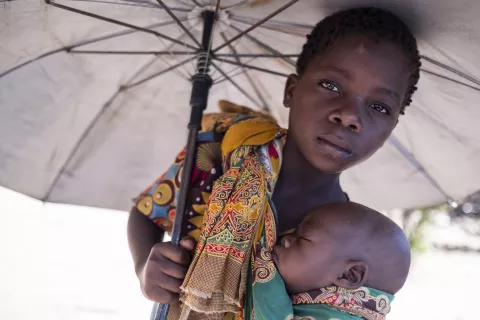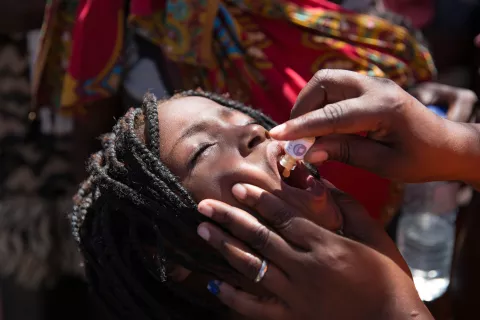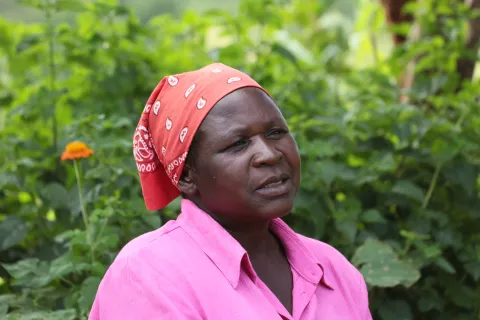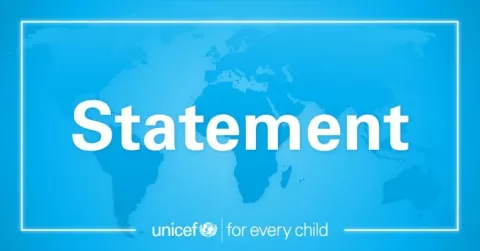After Cyclone Idai, uncertain futures for children left behind
As floodwaters recede in Zimbabwe, UNICEF is working to protect orphaned and unaccompanied children who have lost everything.
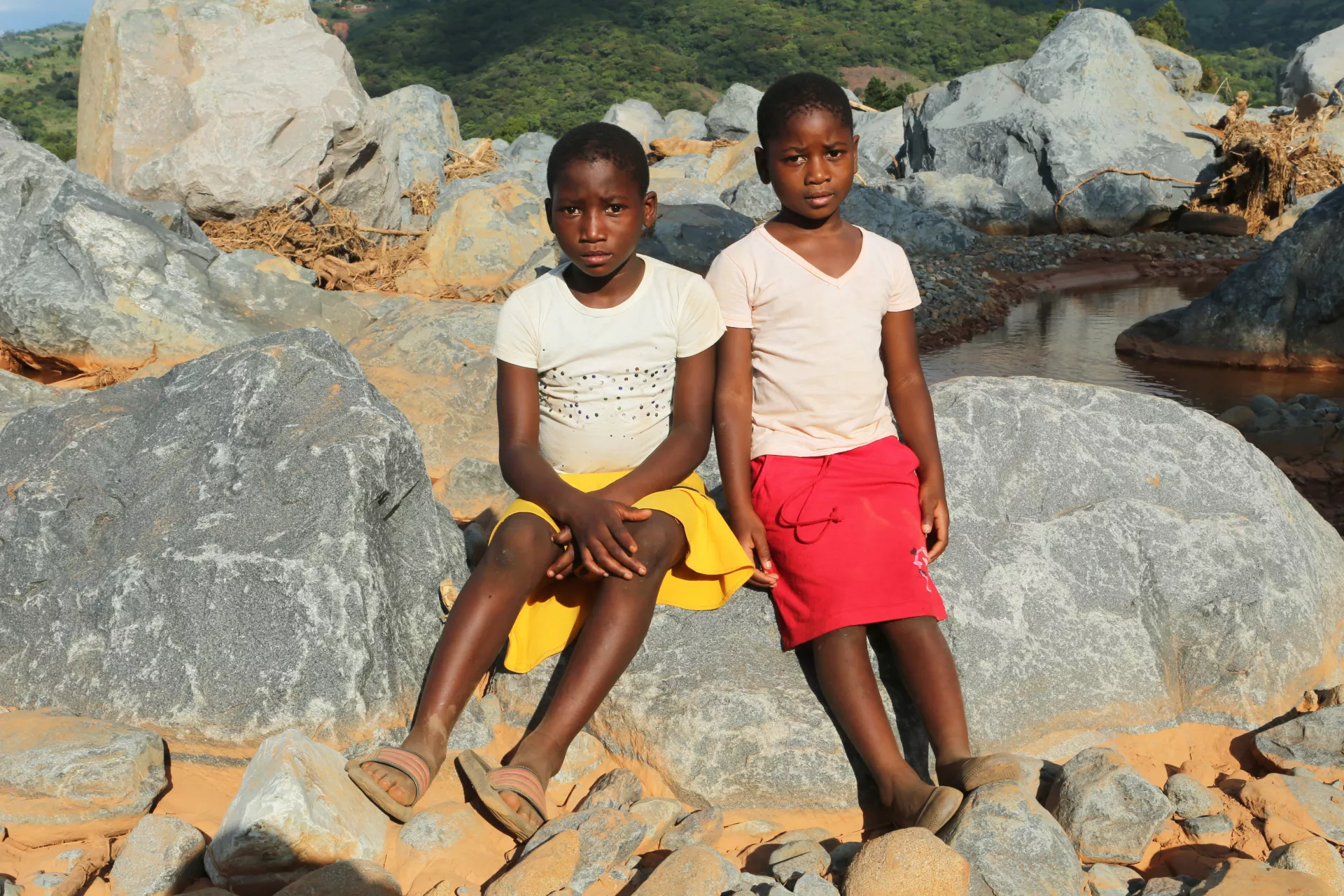
CHIMANIMANI, Zimbabwe – Prudence remembers the last time she saw her brother Proud. If it wasn’t for him she wouldn’t be here to talk about the devastating floodwaters that swept into her district of Chimanimani, near Zimbabwe’s eastern border with Mozambique, in March. But Proud lost his own life saving his sister’s.
“He lifted me up, until I found something to hold on to,” she says, her voice faltering. “But he got swept away.”
Prudence, 5, lost three siblings and a cousin that day. Just over a month later, she’s visiting a UNICEF-supported child friendly space near her old home. She generally stays close to the tent, sitting alone with a pensive look on her face. But from time to time she can be seen tagging along behind the social workers at the space.
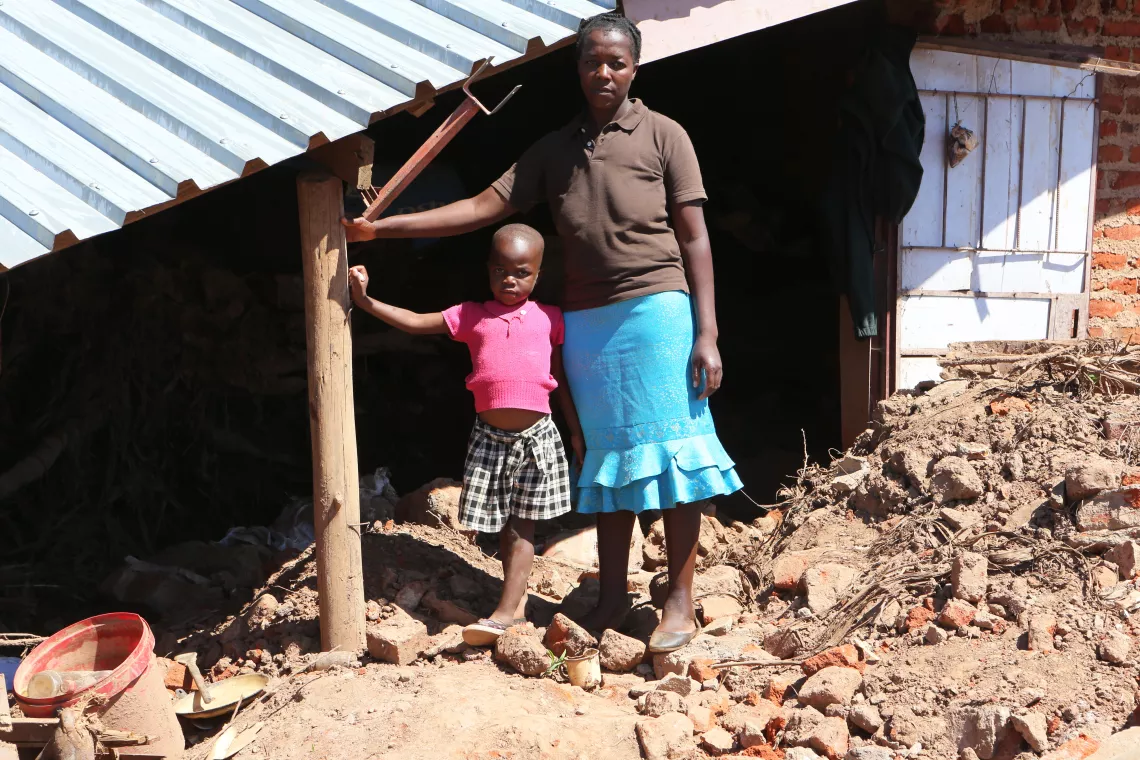
Prudence is just one of the around 1.6 million children across Malawi, Mozambique and Zimbabwe in desperate need of assistance since Cyclone Idai devastated large swathes of the three countries, sweeping away schools, homes – and loved ones.
Lives swept away
The stories at the Kopa business centre in Rusitu Valley, also in eastern Zimbabwe, are similar to Prudence’s.
“We had gone to Granny’s place, but couldn’t go back home for about a week because of the flooding,” says nine-year-old Evernice. She says that when she and her younger sister finally made it back, they learned that their parents – and their home – had been swept away in the flooding.
The sisters are among the almost 240 children in Kopa alone estimated to have lost at least one parent; at least 70 children lost both parents. UNICEF is supporting a child friendly space in the area, but the uncertain futures of Evernice, Prudence and others reflect an emerging crisis as the number of unaccompanied, orphaned and other vulnerable children becomes clear.
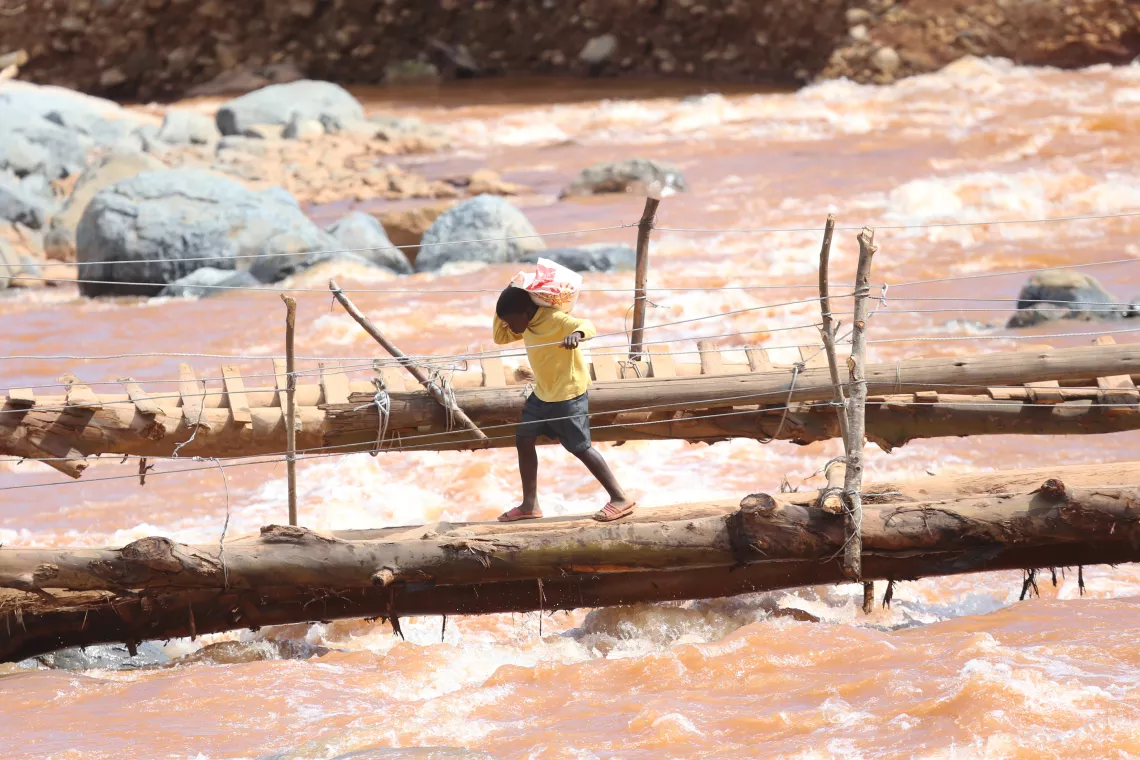
There are no easy answers for children left behind. “There’s the actual cyclone, which left children like Prudence homeless and living in crowded spaces,” says Ngonidzashe Tevedza, a child protection officer with a UNICEF-supported partner organization. But a further complication, she says, is that in many cases, the potential caregivers left behind are elderly, and “rarely have the means to care for these children.”
UNICEF and partners have supported the deployment of dozens of social workers to bolster social services in cyclone-affected areas in Zimbabwe, so far reaching nearly 3,000 children with protection services. The incoming social workers are focusing on providing psychosocial support to separated children, and UNICEF has also reached thousands of children through child friendly spaces.
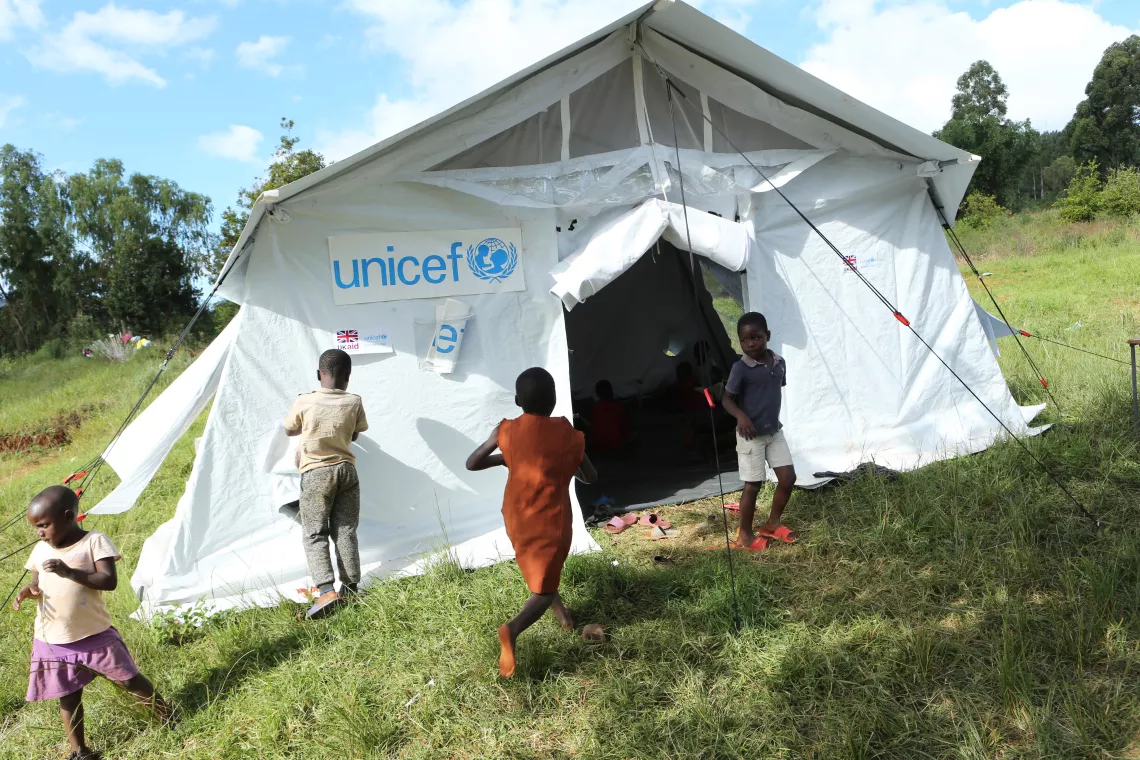
Residents of Chimanimani haven’t only had to contend with high winds and devastating flooding – Cyclone Idai also brought with it mudslides and rockfalls, wiping away bridges, homes, entire communities and their livelihoods. As a result, the humanitarian needs have only increased, even as the floodwaters have receded.
“The gravity of the crisis is becoming clearer, and its implications for women and children are huge,” says UNICEF Representative in Zimbabwe Laylee Moshiri, who recently visited Chimanimani and the nearby district of Chipinge.
Race against time
The devastated infrastructure has left communities in a race against time to prevent the spread of diseases. UNICEF has already provided more than 60,000 people with critical information to prevent waterborne diseases and is distributing hygiene kits, soap and water purification tablets and rehabilitating water systems.
Meanwhile, in partnership with Zimbabwe’s Ministry of Health and Child Care and the World Health Organization, UNICEF has started a cholera vaccination campaign that it hopes will reach more than 480,000 people.
“The campaign is a preventive move to reduce the risk of a cholera outbreak, and UNICEF has been working with civil society partners and communities to raise public awareness in advance of the campaign,” Moshiri says.
But with over 175,000 people displaced by Cyclone Idai, and some 3 million in need, the road ahead will be difficult.
“Our lives have been shattered,” says Granny Mazhokot, who now has three orphaned children to care for. “We have lost our loved ones, our crops, and our livelihoods.”

